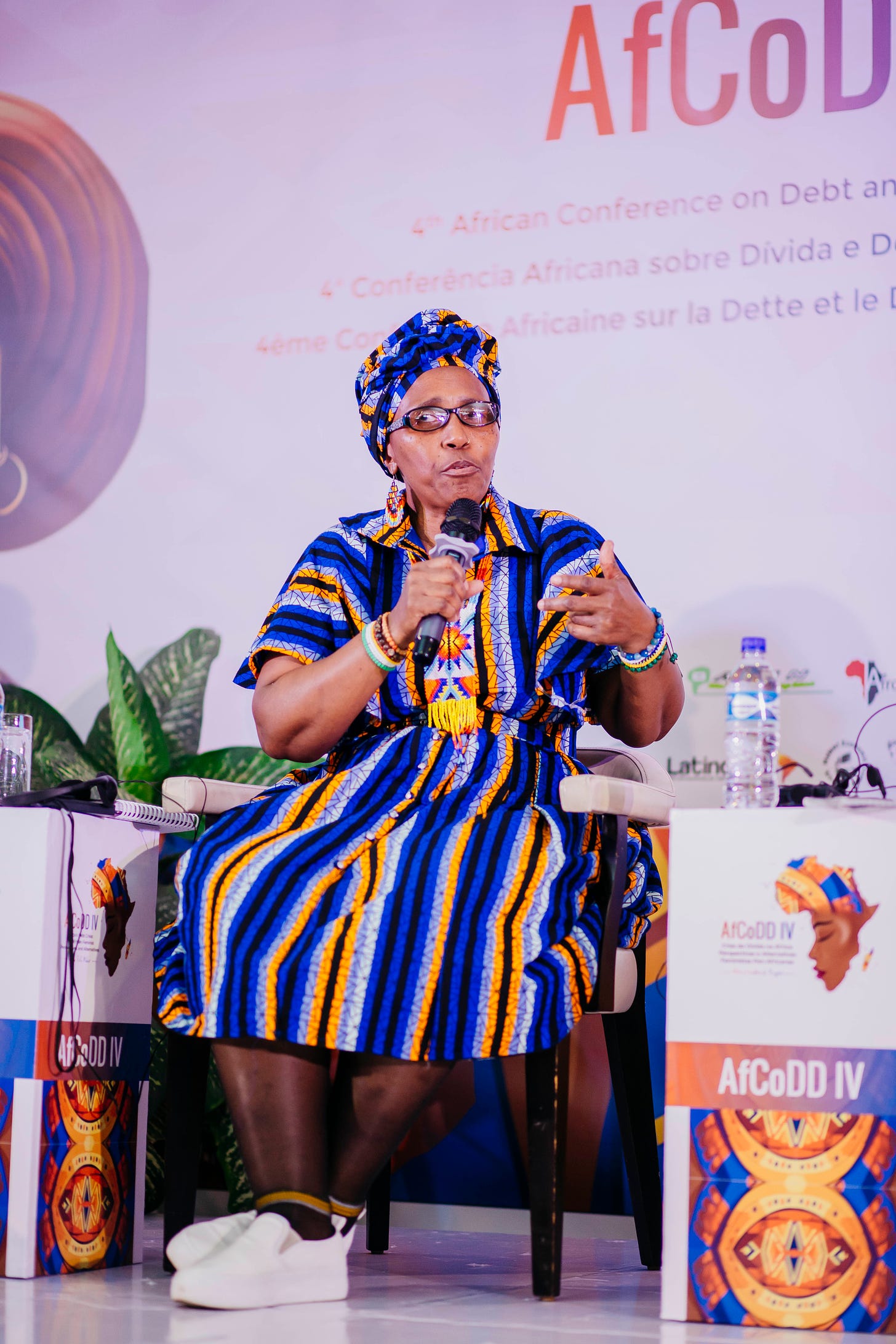Reclaiming African History: Tshabalala-Litchfield Calls for Women's Empowerment
The conference concluded with a call to action for African leaders to prioritize women's empowerment as a key component of achieving sustainable development and economic justice.
MAPUTO, Mozambique — Khanysile Tshabalala-Litchfield, from the African Parliamentary Network on IFFs and Tax (APNIFFT), delivered a powerful message at the 4th African Conference on Debt and Development (AfCoDD IV) in Maputo, Mozambique, writes Winston Mwale.
“It wasn’t a mistake that women were erased,” Tshabalala-Litchfield said, urging participants to confront the systemic exclusion of women from power and resources.
Tshabalala-Litchfield challenged the prevailing narrative of African patriarchy, emphasizing the need to reclaim and redefine African history.
“We need to ask why they are being targeted,” she said, highlighting the need for women to actively claim their place in shaping the future of the continent.
The conference, which took place from August 28-30, dedicated an afternoon session to examining the role of women in power across all sectors.
The session, “Women in Power: Power, Politics, and Resources,” focused on overcoming the barriers that women face and ensuring they have a significant voice in shaping policy and resource allocation.
Tshabalala-Litchfield highlighted the systemic inequalities that hinder women's participation in political and economic spheres.
Women remain underrepresented in key decision-making bodies, including parliaments, and their access to resources continues to be limited, a participant pointed out.
“Women hold less than 30% of parliamentary seats in most parliaments in Africa,” she said.
“This means that their influence on policies and resource allocation is significantly hampered.”
The issue of women’s exclusion from power, she added, is deeply rooted in a historical context where men have dominated power structures.
This, in turn, has led to the marginalization of women and a disproportionate distribution of resources.
“The problem is not just about numbers,” said Tshabalala-Litchfield.
“It's about ensuring that those who do hold positions of power have the capacity to represent the needs and perspectives of women.”
She called for a gender-sensitive approach to political power and resource allocation, advocating for the active involvement of women in all stages of decision-making.
“We need to integrate women's perspectives in political processes for equitable development,” Tshabalala-Litchfield said.
This includes ensuring that women are not just involved in policy-making but also in the distribution and monitoring of resources.
“It should go as far as tracking expenditure to ensure that expenditure outcomes have an impact on what we want to achieve, which is narrowing the gender inequality situation,” she said.
The conference also highlighted the importance of inclusive electoral systems and political parties that actively support women’s leadership.
“Political parties have a role to play in ensuring that women are given this opportunity to be represented,” Tshabalala-Litchfield said.
Experts emphasized the need for greater transparency and accountability in the allocation of public resources, calling for political parties to be incentivized to promote gender equality.
The conference emphasized the need for women to look to historical female leaders as role models rather than solely comparing themselves to men.
Tshabalala-Litchfield stressed the importance of understanding and embracing both feminine and masculine powers in leadership.
As the AfCoDD IV continues, participants are calling for increased representation of women in decision-making roles, more inclusive historical narratives, and gender-sensitive approaches to economic policies and resource distribution across the continent.
The conference, running from August 28-30, 2024, aims to foster dialogue and develop strategies for addressing Africa's debt crisis through a feminist lens, recognizing the unique challenges and perspectives women bring to the table in economic and political spheres.




